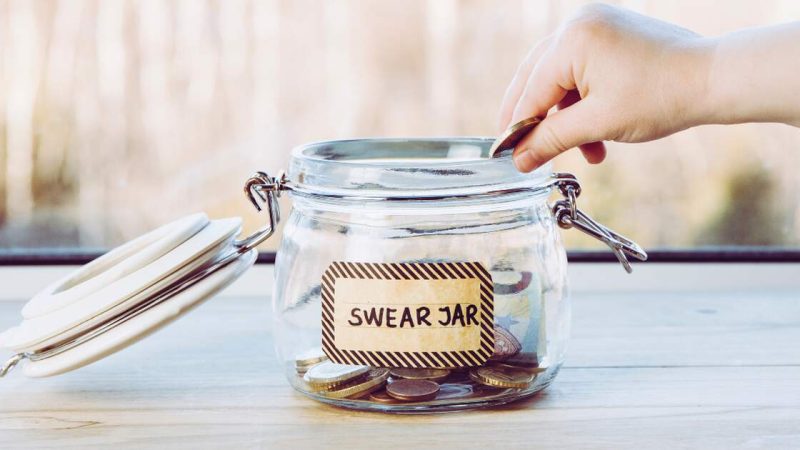Learning a new language often involves mastering not just polite conversation, but also understanding the nuances of colloquial speech. In Dutch, as in any language, swear words and insults play a significant role in expressing frustration, anger, or even humor. This guide to Dutch swear words will introduce you to ten essential insults that will help you navigate various situations with a bit of Dutch flair.
Dutch Swear Words: The Basics
Before diving into specific Dutch swear words, it’s essential to understand their context and usage. Swear words in Dutch, like in many languages, can range from mild and humorous to severe and offensive. They are used to express emotions or reactions, often in moments of stress or irritation. Knowing these terms can enrich your understanding of Dutch culture and help you respond appropriately in different social situations.
Top 10 Dutch Swear Words You Need to Know
Here’s a list of ten Dutch swear words and insults, complete with their meanings and appropriate contexts for use. This guide will help you understand when and how to use these words if you ever find yourself in a heated conversation or just need to express your frustration in Dutch.
Dutch Swear Words: Klootzak
Klootzak is a strong insult in Dutch, translating roughly to “asshole” in English. It’s used to describe someone who is particularly unpleasant or annoying. This word should be used cautiously, as it can easily offend and escalate a situation. Use it only in serious contexts or among friends who understand your sense of humor.
Lul
The word lul translates to “dick” in English. It’s a derogatory term used to describe someone who is acting foolishly or annoyingly. While it’s less harsh than klootzak, it’s still considered vulgar and should be used sparingly. It’s more acceptable among friends or in informal settings.
Eikel
Eikel means “prick” in English and is used to describe someone who is being irritating or difficult. It’s less offensive than klootzak and can be used in a more casual context. However, like other swear words, it should be used with caution to avoid misunderstandings.
Hufter
The term hufter translates to “bastard” or “jerk” and is used to describe someone who behaves rudely or disrespectfully. It’s a strong insult but not as severe as some others on this list. It’s typically used to address someone who has acted in a particularly inconsiderate manner.
Rotzak
Rotzak can be translated to “scumbag” or “piece of shit.” It’s a very derogatory term used to describe someone who is extremely unpleasant or morally corrupt. This word is quite offensive and should be reserved for situations where you are deeply frustrated or angry.
Sukkel
Sukkel translates to “dumbass” or “idiot.” It’s a milder insult compared to some others on this list and is often used in a playful or teasing manner. However, it can still be hurtful if used in the wrong context, so be mindful of the situation and the recipient.
Zak
Zak means “bag” but is used derogatorily to mean “jerk” or “asshole.” It’s a more casual insult and is generally used in informal situations. Like other swear words, its impact depends on the tone and context in which it is used.
Pannenkoek
Pannenkoek translates to “pancake” but is used as a light-hearted way to call someone a “fool” or “simpleton.” It’s less harsh than most other Dutch swear words and can often be used in a humorous or teasing context.
Conclusion
Understanding Dutch swear words can provide a deeper insight into the language and culture. While these words can be used to express frustration or annoyance, they should be handled with care. Misusing them or using them inappropriately can lead to misunderstandings or escalate conflicts. It’s crucial to be mindful of context and the potential impact of these words. Remember, mastering the use of any language includes knowing when and how to use both polite and impolite expressions.
FAQs
Q1. Are Dutch swear words commonly used in everyday conversation?
Dutch swear words are used in various contexts, but their usage depends on the social setting and the relationship between the speakers. In casual or informal settings, some swear words might be more common, while in formal settings, they are generally avoided.
Q2. Can using Dutch swear words affect how others perceive me?
Yes, using swear words can significantly impact how others perceive you. It can convey a lack of respect or emotional instability, especially if used inappropriately. It’s essential to be aware of the context and audience when using these words.
Q3. How severe are Dutch swear words compared to their English counterparts?
The severity of Dutch swear words can vary. Some words may be comparable in intensity to their English counterparts, while others might be milder or more severe. Understanding cultural nuances is crucial for accurate comparison.
Q4. Is it acceptable to use these swear words among friends?
Among close friends, the use of swear words might be more acceptable, especially if there’s a mutual understanding and it’s done in a joking or playful manner. However, always be cautious, as it can still offend or cause discomfort.
Q5. How can I learn to use swear words in Dutch appropriately?
To use swear words in Dutch appropriately, it’s important to immerse yourself in the language and culture. Observe how native speakers use these words and in what contexts. Additionally, practicing with native speakers and asking for feedback can help ensure you use them correctly.
Also read: Travel Money Belt: 15 Real-Life Tips from Travel Experts









